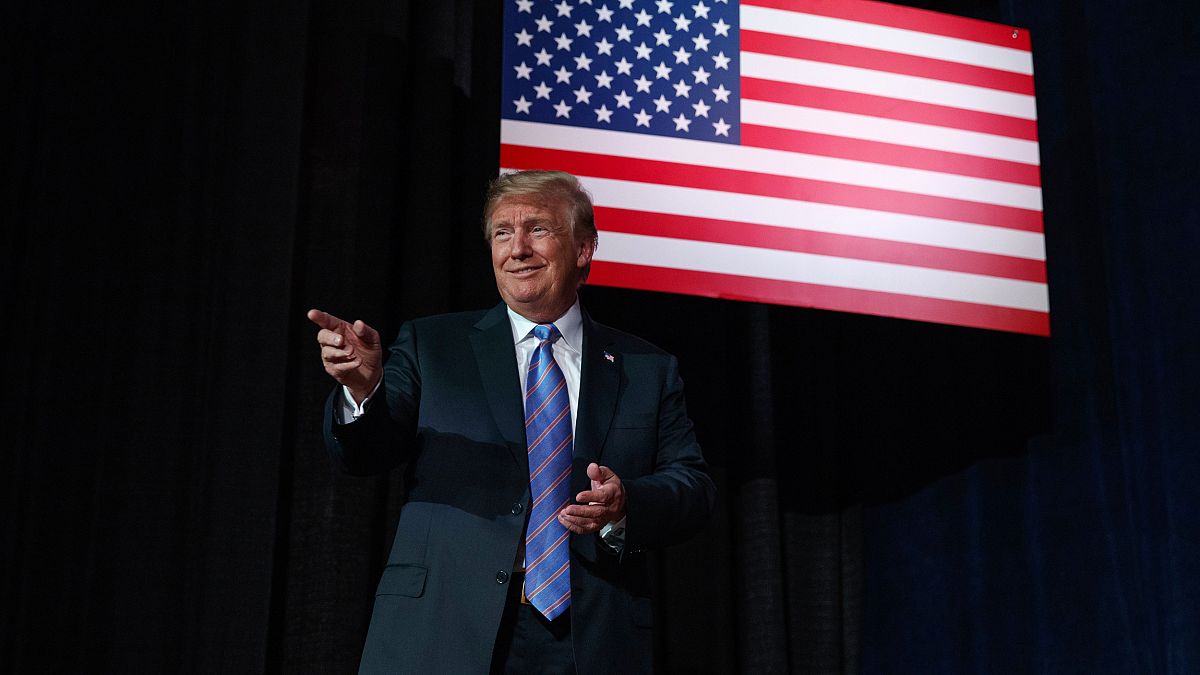Your witty rejoinder to a presidential typo is just taking his bait.
By Matt Laslo
Trump tweets, and just as surely as a clock ticks and tocks, a backbencher House Democrat mocks him and goes viral. Trump speaks and a backbencher Republican attempts to distance himself from the remarks with his own sassy cyber jabs that gain him thousands of retweets and other Internet accolades, though his message likely goes unseen by the president himself. Trump hits set "send" on a barb at a female senator and Sen. Elizabeth Warren, D-Mass., launches a seemingly instantaneous counterattack and accuses the president of slut-shaming her colleague, Sen. Kirsten Gillibrand, D-N.Y.
Most all of us are unwittingly — with every tweet, email blast to donors, cable news appearance and op-ed — perpetuating the myth that President Trump is the center of the universe. He's not though; he's merely our president. Lawmakers from both parties, along with the bulk of the press corps (myself included) just regularly take the bait and attempt to duke it out with him on his favorite terrain — the Twitter app.
The job of the media, Congress and the judiciary (according to the constitution) is to keep the president in check. But that doesn't mean amplifying and calling out every sensational, misspelled or strangely capitalized tweet, especially when if doing so means forsaking the tangible pain and suffering happening in this real world that exists beyond our screens.
The president's tweet with the non-word-word "Covfefe," for instance, got more than 127,000 retweets, even as the nation was engaged in two wars. And as the Senate debated the life-and-death issue of health insurance, the president refocused the nation's attention on football and was able to single handedly tank the NFL's ratings with the mere swipes of his fingers on his phone. Or look at how how he raised people's ire with a crass tweet of him wrestling with a CNN logo superimposed on his opponent: Itblew up the Internet during a week where a watchdog confirmed the use of Sarin gas in Syria.
The bulk of the masses on social media have, in many ways, become more like Trump than many would like to admit: He tweets therefore I am, is now the unspoken, yet defining, theme of this era of government.
And yet, while President Trump's method of engagement is novel, but he's not necessarily doing anything new: Presidents for years have sought to bring their message unadulterated to supporters while relying on the media to do little more than amplify it uncritically.
Teddy Roosevelt hopped on whistle stop tour after whistle stop tour where he was able to drop into rural and suburban communities alike to deliver short, pre-packaged speeches that local papers would usually print verbatim. (He left them short on purpose for that very reason.) Franklin Roosevelt revolutionized and heightened the stature of the office with his fireside chats, that brought his message over the heads of the pesky press corps and directly into the living rooms of the American people.
But, though it would have been seen as a scoop, even the reporters covering Lyndon B. Johnson had the good sense not to report on every turd he dropped in their presence.
Trump isn't reinventing the wheel. If anything, he's just spray painted an old, rusty wagon wheel with the glitzy gold that, over the decades, he's made synonymous with his own family name. But this era of bright screens and on-demand delivery seems to be clouding our minds, as though we've purposefully trained ourselves to focus on the shiny spray painted object in front of us and not on the more important stories unfolding just off our phone screens.
While the founders envisioned a government that moved slowly and methodically, today's Wi-Fi-enabled political discourse is demanding the opposite, and the allure of being one day's internet sensation has drawn most all of us in like moths to a flame named Trump — the one steady, bright light that we all shamelessly, even helplessly, flitter towards even as we should know the momentary warmth is hiding the heat that will eventually be our own doom.
Trump's chaos theory of running companies is now on full display in the West Wing, but it's also on display in the rest of us. He's the made himself the center of our universe, and most of us are now unwittingly circling his orbit.
It's time for every Trump critic in cyberspace to pause, take a deep breath (or five) and put the salesman-turned-president in proper perspective. The founders wanted a government of the people, but they never said we had to tweet at the president's level. He's merely today's shiniest, (though ever-fading) object and in reality represents nothing new. There's no need to be a part of a pack that's unwittingly rushing to promote his every Covfefe.
Matt Laslo is a reporter who has written for NPR, Rolling Stone, The Atlantic, The Daily Beast, The Guardian and VICE News, among others. He's also an adjunct professor teaching regularly at The Johns Hopkins University and has taught at Boston University and The University of Maryland.
This article was originally published on NBC Think. Opinions expressed in View articles do not reflect those of Euronews
